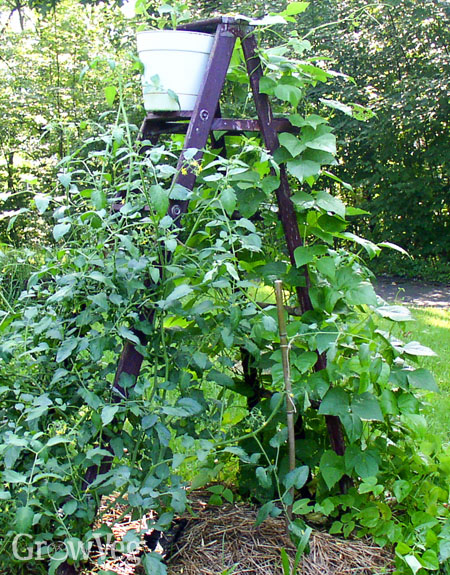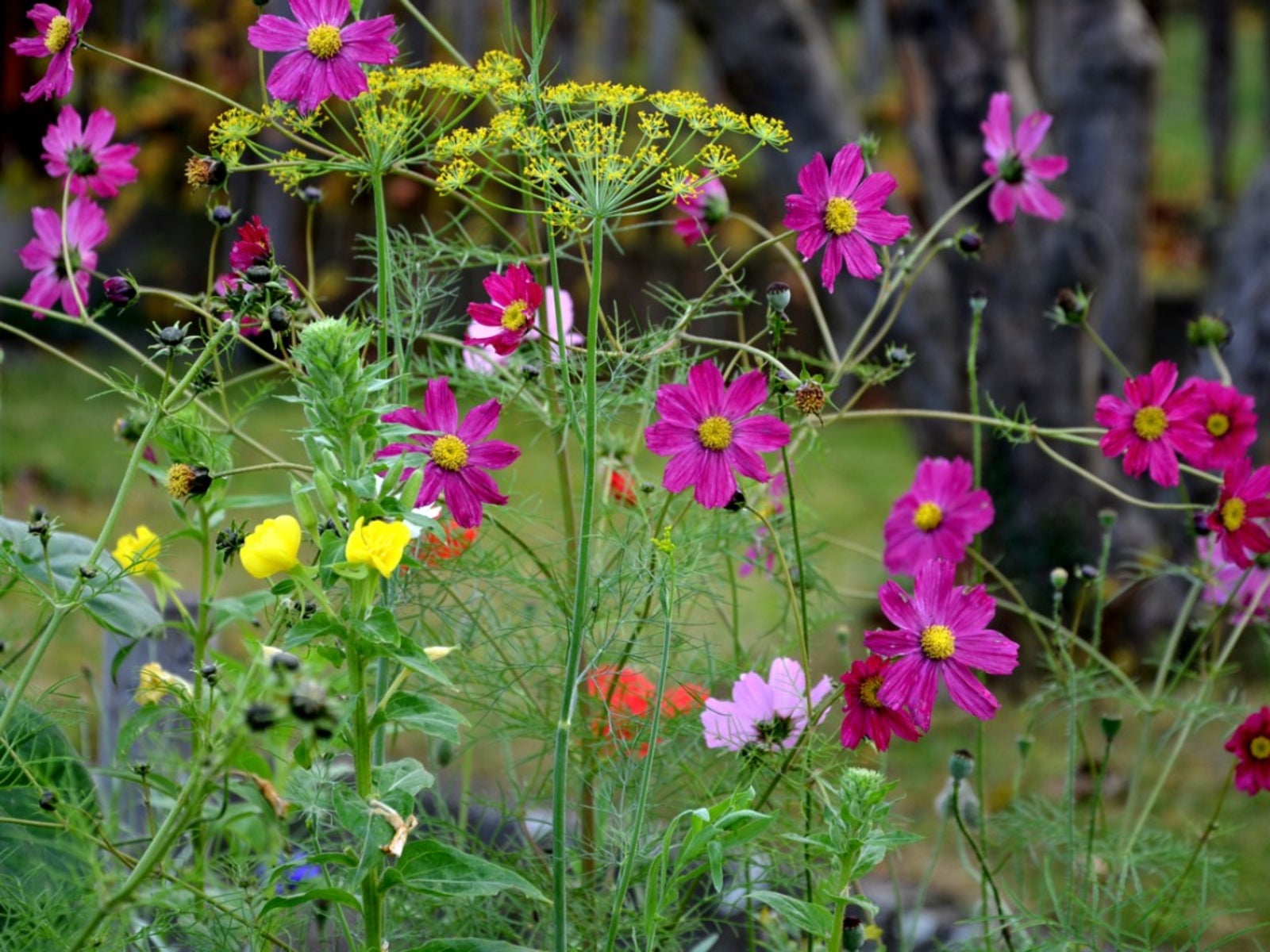The Ultimate Guide To Companion Planting With Squash
The Ultimate Guide to Companion Planting with Squash
Squash is a delicious and versatile vegetable that can be enjoyed in many different ways. But did you know that companion planting can help you grow healthier and more productive squash plants?
Companion planting is the practice of planting certain plants together to benefit each other. Some plants can attract beneficial insects, deter pests, or improve the soil. By planting squash with the right companion plants, you can boost your harvest and reduce your workload.
In this guide, we will discuss the benefits of companion planting with squash, and recommend some of the best companion plants for your garden. We will also provide some tips on how to plant and care for your squash plants.
Benefits of Companion Planting with Squash
There are many benefits to companion planting with squash. Here are a few of the most important:
- Improved pollination: Some companion plants can attract beneficial insects, such as bees and butterflies. These insects help to pollinate your squash plants, which leads to a better harvest.
- Reduced pest pressure: Some companion plants can deter pests that would otherwise damage your squash plants. For example, marigolds can repel squash vine borers, and nasturtiums can attract aphids away from your squash plants.
- Improved soil health: Some companion plants can help to improve the soil quality around your squash plants. For example, legumes, such as beans, can fix nitrogen in the soil, which provides a nutrient boost for your squash plants.
- Reduced workload: Companion planting can help to reduce your workload in the garden. For example, some companion plants can help to suppress weeds, which means you will have less weeding to do.
Best Companion Plants for Squash
There are many different companion plants that can be beneficial for squash. Here are a few of the best:
- Beans: Beans are a great companion plant for squash because they fix nitrogen in the soil. This nutrient boost helps to improve the growth and productivity of your squash plants.
- Corn: Corn is another good companion plant for squash because it provides a trellis for the beans to climb. This frees up space in your garden and helps to keep the beans off the ground, where they are less likely to be damaged by pests.
- Marigolds: Marigolds are a popular companion plant for squash because they repel pests, such as squash vine borers. They also attract beneficial insects, such as ladybugs, which help to control pests.
- Nasturtiums: Nasturtiums are another good companion plant for squash because they repel pests, such as aphids. They also attract beneficial insects, such as hoverflies, which help to control pests.
- Potatoes: Potatoes are a good companion plant for squash because they help to suppress weeds. The potato leaves shade the soil, which makes it difficult for weeds to germinate.
- Peas: Peas are a good companion plant for squash because they help to improve the soil quality. They add nitrogen to the soil, which helps to improve the growth and productivity of your squash plants.
- Herbs: Many herbs are good companion plants for squash. Some of the most beneficial herbs include basil, chives, dill, oregano, and rosemary. These herbs help to repel pests, attract beneficial insects, and improve the soil quality.
Tips for Planting and Caring for Squash
When planting squash, it is important to choose a sunny location with well-drained soil. Squash plants need at least 6 hours of sunlight per day. The soil should be rich in organic matter and have a pH of 6.0 to 6.8.
Squash plants can be direct-seeded or transplanted. If you are direct-seeding, sow the seeds 1 inch deep and 2-3 inches apart. If you are transplanting, plant the seedlings 2-3 feet apart.
Squash plants need regular watering. Water the plants deeply once a week, or more often during hot, dry weather. Mulch around the plants to help conserve moisture and suppress weeds.
Squash plants are susceptible to a number of pests and diseases. Some of the most common problems include squash vine borers, powdery mildew, and spider mites. To prevent these problems, it is important to practice good garden sanitation and to inspect your plants regularly.
Conclusion
Companion planting with squash is a great way to improve the health and productivity of your plants. By planting the right companion plants, you can boost your harvest and reduce your workload.
I hope this guide has given you some helpful information about companion planting with squash. With a little planning, you can create a thriving garden that is full of delicious squash.
FAQ of companion plants with squash
Q: What are some good companion plants for squash?
A: Some of the best companion plants for squash include:
- Beans and peas: These legumes fix nitrogen in the soil, which is beneficial for squash plants. They also help to shade the soil, which can help to keep it cool and moist.
- Corn: Corn provides a sturdy trellis for vining squash varieties, and it also helps to attract pollinators.
- Marigolds: Marigolds help to repel pests such as squash bugs and beetles. They also add a splash of color to the garden.
- Nasturtiums: Nasturtiums attract beneficial insects such as ladybugs and lacewings, which help to control pests. They also have edible leaves and flowers.
- Radishes: Radishes help to deter squash vine borers, which are a common pest of squash plants.
Q: What plants should I avoid planting near squash?
A: Some plants that you should avoid planting near squash include:
- Melon: Melons are heavy feeders that can compete with squash plants for nutrients.
- Beet: Beets have a taproot that can disrupt the roots of squash plants.
- Potato: Potatoes are susceptible to the same diseases as squash plants, so planting them together can increase the risk of disease.
- Cucumber: Cucumbers and squash are both members of the Cucurbitaceae family, and they can cross-pollinate. This can result in fruits that are not true to type.
- Pumpkin: Pumpkins can be heavy feeders, and they can shade out squash plants.
Q: What are the benefits of companion planting with squash?
A: There are many benefits to companion planting with squash, including:
- Improved pollination: Some companion plants, such as marigolds and nasturtiums, attract beneficial insects that help to pollinate squash flowers.
- Disease suppression: Some companion plants, such as radishes and nasturtiums, help to suppress pests and diseases that can affect squash plants.
- Increased yields: Companion planting can help to increase the yields of squash plants by improving pollination and suppressing pests and diseases.
- Improved soil health: Some companion plants, such as beans and peas, help to improve soil health by fixing nitrogen in the soil.
Q: How do I choose companion plants for squash?
A: When choosing companion plants for squash, there are a few factors to consider, including:
- The needs of the squash plant: Squash plants need full sun and well-drained soil. They are also heavy feeders, so you will need to choose companion plants that have similar needs.
- The pests and diseases that are common in your area: Choose companion plants that help to suppress the pests and diseases that are common in your area.
- The aesthetics of your garden: If you are concerned about the aesthetics of your garden, you can choose companion plants that add color or interest.
Image of companion plants with squash
- Beans: Beans are a great companion plant for squash because they help to fix nitrogen in the soil, which is beneficial for squash plants. They also help to shade the soil, which can help to suppress weeds.

- Borage: Borage is a flowering plant that is a natural insect repellent. It can help to protect squash plants from pests such as squash bugs and cucumber beetles.

- Cosmos: Cosmos is a flowering plant that attracts beneficial insects, such as ladybugs and lacewings. These insects help to control pests that can damage squash plants.

- Dill: Dill is a herb that helps to repel pests such as aphids and spider mites. It can also help to improve the flavor of squash.
- Nasturtiums: Nasturtiums are a flowering plant that attracts beneficial insects, such as ladybugs and lacewings. These insects help to control pests that can damage squash plants.

Post a Comment for "The Ultimate Guide To Companion Planting With Squash"